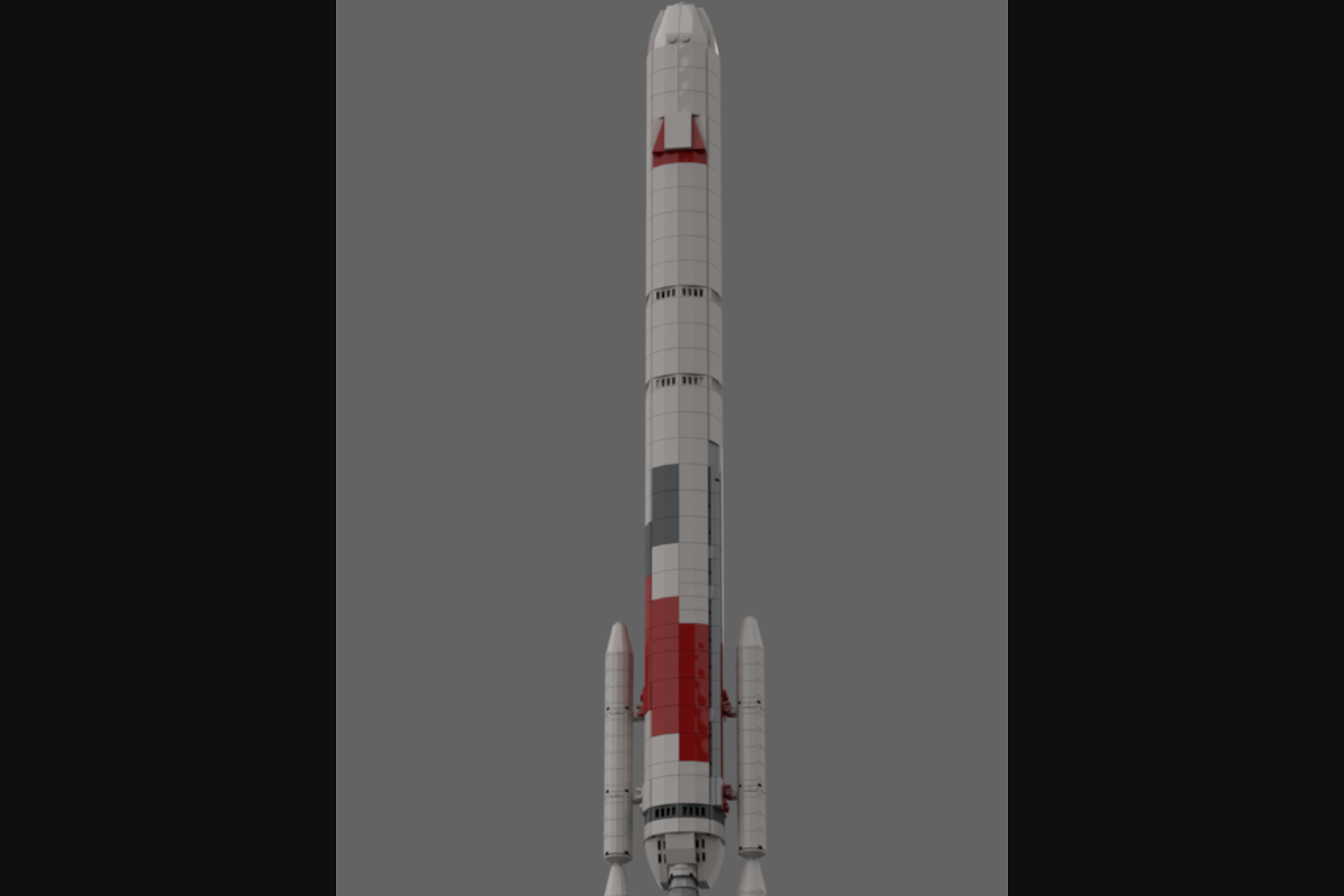Lego fan renders Vulcan Centaur ahead of ULA rocket's debut flight
The next-gen Vulcan Centaur rocket is slated to launch later this year, but you can admire it in Lego form right now.

A Lego fan got an early start on launching a new rocket line.
Jackson Armstrong, who enjoys photographing rocket launches and building Lego models, rendered his own version of United Launch Alliance's (ULA) Vulcan Centaur rocket in brick form and shared the results on Twitter Sunday (Jan. 29).
"This design features the shiny new paint scheme and the payload fairing as it will appear on the first orbital flight," wrote Armstrong. That debut mission will loft two prototype internet satellites for Amazon's Project Kuiper, as well as the Peregrine moon lander built by the company Astrobotic.
Armstrong did not share dimensions or details on his Lego build, which appears to exist only in computer-generated drawings for the time being. If he moves forward to a tabletop version, we'll be sure to let you know.
For all you space fans who love Lego, our best Lego space sets of 2023 page features NASA Lego recreations, spaceships, Marvel creations and more. Padawans may also enjoy the extensive and ever-growing set of Lego "Star Wars" kits to equip your journey to the light or dark side of the Force.
Related: Lego space deals: savings on spaceships, space stations and NASA kits
I designed the @ulalaunch upcoming Vulcan rocket in Lego!This design features the shiny new paint scheme and the @astrobotic payload fairing as it will appear on the first orbital flight. @torybruno pic.twitter.com/bnslpRJTWDJanuary 29, 2023
The real-life Vulcan Centaur rocket recently made it to Florida's Space Coast, arriving aboard ULA's RocketShip barge on Jan. 22. The rocket is now at ULA facilities in the region "for post-arrival inspections and the start of launch preparations," the company wrote in a statement shortly after the arrival.
Breaking space news, the latest updates on rocket launches, skywatching events and more!
Launch is slated to take place from Cape Canaveral Space Force Station in the next few months, if all goes to plan.
The (non-Lego) Vulcan Centaur is a 202-foot-tall (67 meters) rocket that will replace ULA's popular Atlas V and Delta IV rockets for commercial and government missions. Vulcan is equipped with a Centaur V upper stage and, depending on the mission, up to six solid rocket boosters. Its first stage includes two BE-4 methane-liquid oxygen engines built by Blue Origin.
While Lego doesn't (yet) have an official copy of the Vulcan Centaur, it has used rockets before in its sets. A popular example is the NASA Saturn V rocket that launched astronauts to the moon; Lego's version included 1,969 pieces in honor of the Apollo 11 crew that touched down on the moon in 1969.
Elizabeth Howell is the co-author of "Why Am I Taller?" (ECW Press, 2022; with Canadian astronaut Dave Williams), a book about space medicine. Follow her on Twitter @howellspace. Follow us on Twitter @Spacedotcom or Facebook.

Elizabeth Howell (she/her), Ph.D., was a staff writer in the spaceflight channel between 2022 and 2024 specializing in Canadian space news. She was contributing writer for Space.com for 10 years from 2012 to 2024. Elizabeth's reporting includes multiple exclusives with the White House, leading world coverage about a lost-and-found space tomato on the International Space Station, witnessing five human spaceflight launches on two continents, flying parabolic, working inside a spacesuit, and participating in a simulated Mars mission. Her latest book, "Why Am I Taller?" (ECW Press, 2022) is co-written with astronaut Dave Williams.
